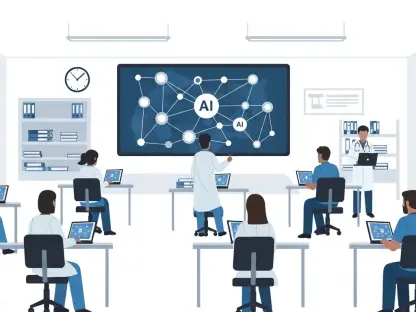The mental health care sector is at a pivotal juncture. With mental health concerns such as depression and anxiety costing an estimated $240 billion in 2020, the potential role of digital solutions has never been more critical. As the COVID-19 pandemic exacerbated these issues, innovations in digital mental health care present both challenges and opportunities. This analysis outlines the impact and future of these digital interventions.
Impact of Digital Innovations in Mental Health Care
The mental health sector has transformed significantly, moving from institutionalized care to a community focus. Digital solutions now represent the next shift, driven by technological progress and increased mental health awareness. These innovations offer a timely response to burgeoning mental health issues. Understanding this evolution reveals the necessity and potential of incorporating digital approaches into modern health care strategies.
Unpacking Digital Mental Health Solutions
Self-Guided Tools and Their Promise
The self-guided digital tools sector is increasingly popular for addressing mental health challenges due to its accessibility and user-friendly nature. Platforms like Dario and Headspace have emerged as promising options, showing significant symptom reduction and economic benefits, particularly for commercial payers. The Peterson Health Technology Institute found that, although these tools bring cost-effective solutions, user engagement and demographic-specific efficacy are ongoing challenges. Ensuring sustained user interaction and tailoring solutions to diverse needs will be crucial for maximizing their impact.
Prescription Digital Therapeutics: A Personalized Approach
Prescription digital therapeutics provide a personalized layer to treatment, enhancing traditional therapeutic methods. Products such as DaylightRx offer effective solutions by potentially reducing therapy frequency and costs, which fortify their appeal amid rising mental health concerns. Nevertheless, regulatory challenges and adoption rates could stymie their impact. Successfully navigating these hurdles will dictate how effectively they can integrate into broader mental health regimens.
Blended-Care Models: A Sophisticated Solution
Blended-care models amalgamate digital content with virtual therapy, offering enhanced clinical outcomes. While offering discernible improvements, these models come with pricing concerns that could inflate health care expenses if not managed correctly. Experts advocate for strategic pricing structures tailored to usage patterns to avoid overwhelming healthcare budgets. Industry-wide implementation can benefit substantially by resolving these financial misconceptions and leveraging localized strategies.
Prospects for Digital Mental Health Solutions
The landscape for digital mental health solutions is set to expand, spurred by technological innovations and shifting perceptions of mental wellness. Economic shifts and evolving regulatory frameworks are aimed at optimizing their deployment. The rise of artificial intelligence and machine learning promises greater personalization, enhancing treatment efficacy and user satisfaction, thus laying the groundwork for future advances.
Concluding Reflections on a New Era
Digital solutions have shown commendable potential for reshaping mental health care, indicating a promising future. Recommendations include strategic pricing discussions, improving user engagement, and fostering collaborations that could lead to enhanced outcomes. Digital interventions should function as ancillary tools within a broad mental health strategy. In this evolving landscape, digital solutions have the potential to democratize access and elevate overall mental health outcomes. The continued reshaping of mental health care is imperative, with digital innovations playing a crucial role in surmounting the current crisis.









